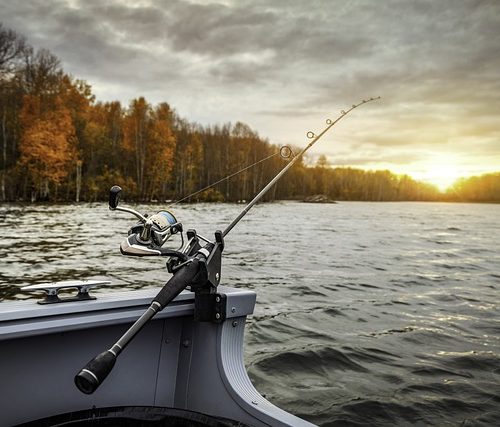Dust build-up and many other environmental factors may cause solar panel efficiency to decrease over time. Dust build-up itself isn’t that big of a deal unless you live in a very dry place. An occasional rain shower might be enough to wash away that dust. However, there might be more harm than well produced from rainfall depending on other factors. So, the question arises, how to clean solar panels?
Different types of dust and other environmental factors may combine to tax your best solar panels energy output. Many people debate whether or not to clean solar panels or how to tell if they actually need cleaning. There might not be a clear answer as many factors will be different in many parts of the world. When looking to clean solar panels, we have an easy solution anyone can do. If you’re interested in solar power but worried you can’t install solar panels, don’t worry – you can still get great rates from frontier utilities rates.
Do You Need Solar Panels Cleaning to Maintain Their 100% Efficiency?
Let us start by declaring this is no definitive cleaning guide for any solar panels anywhere in the world. That being said, like everything else, solar panels will also need cleaning every once in a while. So, how often does this once in a while really is? Can that occasional rainstorm not do the job? Some important questions to ask and observations to make include:
- How much dust buildup occurs on the roof, side of buildings and the solar panels in your area?
- How often does rainfall occur in your area and how accessible are the solar panels to it?
- What was the intensity of that last rainfall? You need quite heavy rain to fully wash away the dust without turning it into the mud.
- In case of snow, you need to check whether the snow is off the panels or still on them.
Rain Good or Bad to Clean Solar Panels?
Researchers have proven with calculations that an efficiency deficit of around 4% can be expected in moderately dusty places. This is the annual dust buildup percentage. Most homes or commercial buildings with solar panels will not worry about this. However, left alone for long periods (many years) and things start to get worse.
Especially in dry climates, longer periods without rain can build a lot of dust-ups. Also, for solar panels in more dusty parts of the world, this rate can rise up quickly. So, in cases like these, lack of rain is the main problem. Also, normal rainfall levels can rinse off solar plates keeping your solar storage system juiced up. Do your worries end there!
Additionally, factors like bird droppings, pollen, dry leaves, ash and a hazy film on the panels are to be considered too. Smog or smoke can affect solar panel efficiency as well. Solar panels cleaning depends on a lot more than just dust and rainfall relation. Most of these materials don’t rise off with light to medium rainfall. Some might even be persistent in heavy rainfall as well.
It is easy to see why cars are never fully cleaned even after a good rain period. There are materials hanging in the air that mix with raindrops eventually making their way to everything they come in contact with. You can expect a dip in efficiency with no cleaning. However, this dip should quickly rise back up after a cleaning session on solar panels.
How to Determine When to Clean Solar Panels?
Solar panel efficiency changes and fluctuates in either direction at different times of the year. This is because the sun slightly keeps changing position regularly. Having measured this fluctuation, if you see any further efficiency dips, this may be a sign of dusty and dirty panels. Consider these questions making your observations:
- Is there an angle to your solar panels or are they pretty flat? If they are flat, there might be nothing making that collected dust slide off.
- Is your home or office where solar panels are being used close to a major highway, airport or farmland? If yes to any, the air quality in the area might not be clean, to begin with.
- What is the frequency of rain in your area? If there are periods of no rain for many months, this is a chance for dust buildup.
- Is there wildfire smoke, smog or too much pollution in your city? If yes, you can expect a period of a month to build up dust, smoke and whatnot on your panels.
- Are there tall trees around the solar panels? If yes, their dried leaves might settle that get stuck by rain on the panels.
- Do you get a lot of moss around the building due to the humid environment? If yes, rain might work against your clean solar panels’ agenda.
So, How to Clean Solar Panels If You Determine They Need Cleaning?
Solar power is a clean form of energy. However, for solar panels, occasional cleaning doesn’t hurt top efficiency levels. So, how do you do solar panel cleaning? Below is a DIY guide. This is by no means a professional solar panel cleaning solution. Also, if you have commercial solar panels spread across a wide area, you might need professional help.
- Fill a bucket with clean water. Add some soap to the water and mix well.
- Gently, rinse the panels with that water and soap solution. This should clear away all loose dirt and other materials like leaves.
- Get a soft scrubber and soak it in that soap water from the bucket. Also, make sure you use soft scrubbers only. It is advised to also use a sprayer for that soap water. Scrub the surface and wherever you see bird waste or any other stuck-up materials.
- Rinse the panels with soap water again. Now, rinse with clean water without spray once. Repeat the process wherever you see muddy spots, bird waste, stuck dried leaves and whatnot.
- Once done, make sure to squeegee your panels dry. It is important that there is not much liquid left. The liquid will attract more dust quickly.
Final Thoughts
It is important to keep your solar panels running at their full efficiency. Dust buildup, smoke, bird droppings, leaves and other materials may combine to reduce solar panel efficiency. How to clean solar panels and when it’s needed is explained above in detail. Usually, just a quick low to medium pressure water spray with a hose takes all that dust and other materials off. However, don’t use high-pressure hoses. Follow the abovementioned steps to fully clean your domestic or commercial solar panels.






